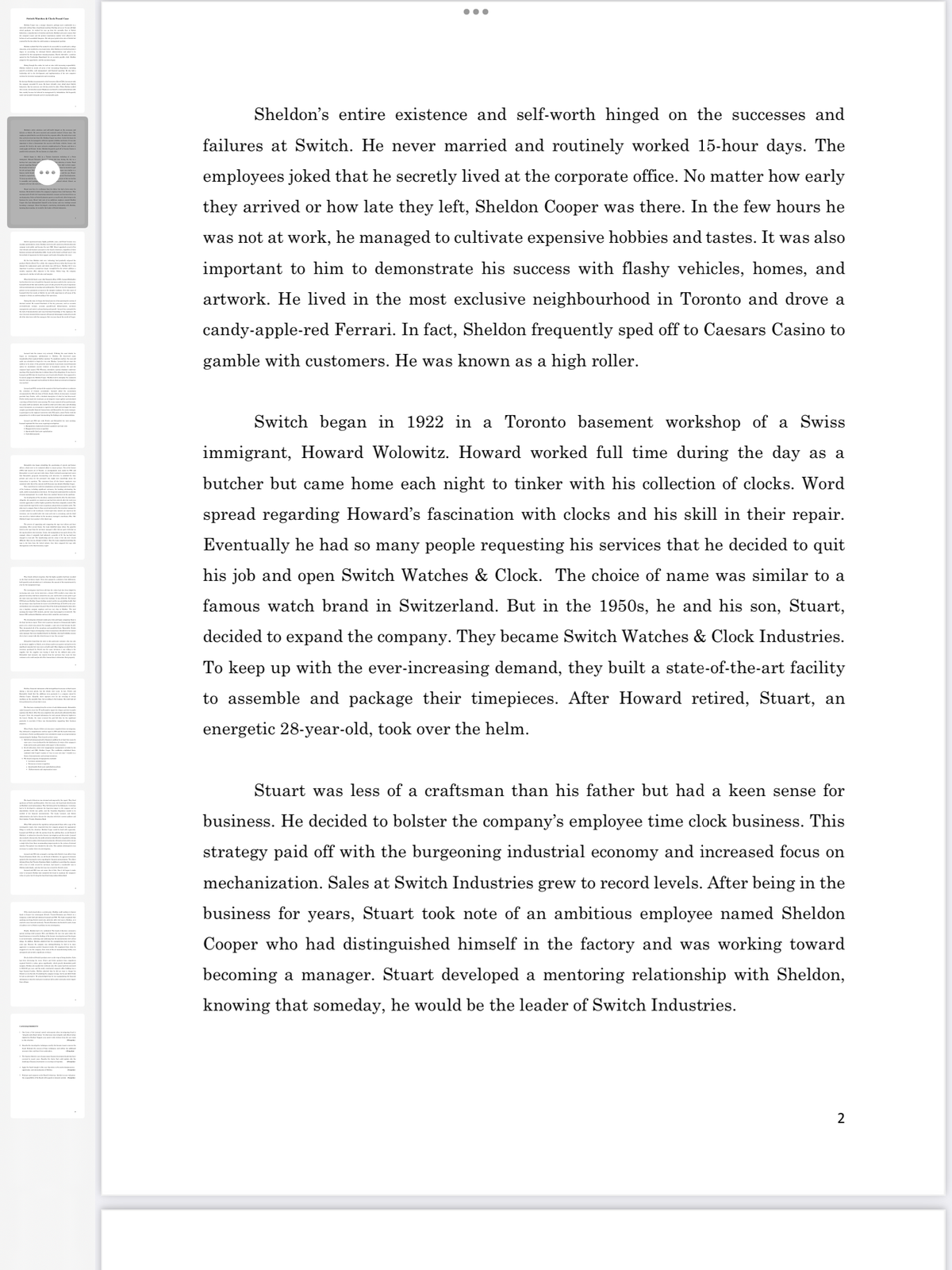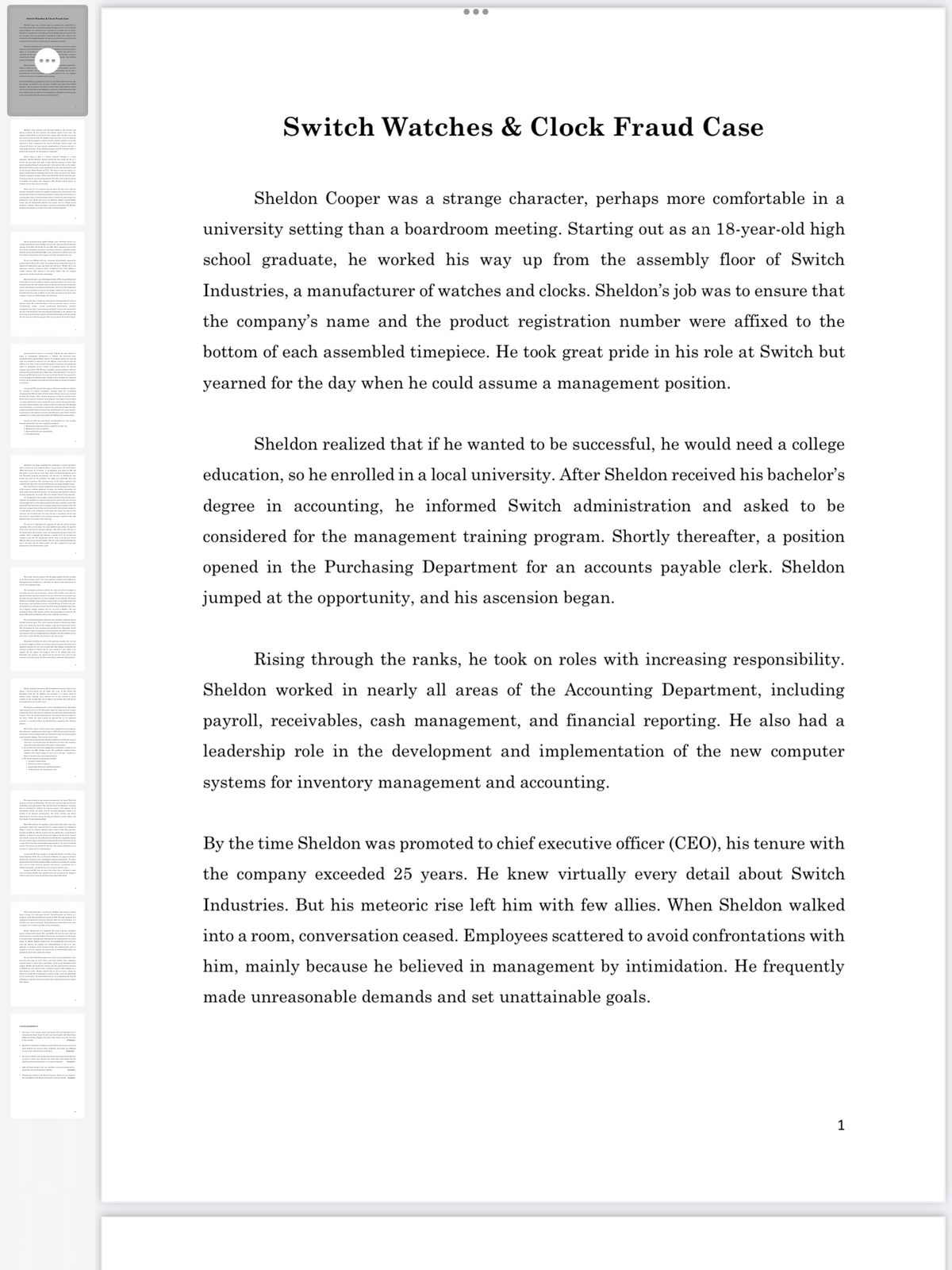Sheldon Cooper was a strange character, perhaps more comfortable in a niversity setting than a boardroom meeting. Starting out as an 18-year-old high hool graduate, he worked his way up from the assembly floor of Switch dustries, a manufacturer of watches and clocks. Sheldon's job was to ensure that e company's name and the product registration number were affixed to the ottom of each assembled timepiece. He took great pride in his role at Switch but earned for the day when he could assume a management position. Sheldon realized that if he wanted to be successful, he would need a college ducation, so he enrolled in a local university. After Sheldon received his bachelor's egree in accounting, he informed Switch administration and asked to be onsidered for the management training program. Shortly thereafter, a position pened in the Purchasing Department for an accounts payable clerk. Sheldon mped at the opportunity, and his ascension began. Rising through the ranks, he took on roles with increasing responsibility. heldon worked in nearly all areas of the Accounting Department, including ayroll, receivables, cash management, and financial reporting. He also had a adership role in the development and implementation of the new computer stems for inventory management and accounting. y the time Sheldon was promoted to chief executive officer (CEO), his tenure with e company exceeded 25 years. He knew virtually every detail about Switch ndustries. But his meteoric rise left him with few allies. When Sheldon walked to a room, conversation ceased. Employees scattered to avoid confrontations with m, mainly because he believed in management by intimidation. He frequently ade unreasonable demands and set unattainable goals.
Switch Watches & Clock Fraud Case CASE REQUIREMENTS 1 One factor of the internal control environment when investigating fraud is “integrity and ethical values.” In what ways were integrity and ethical values slighted by Sheldon? Support your answer with evidence from the case study in this situation. 2 Describe the investigative techniques used by the forensic team to uncover the fraud. Evaluate the success of these techniques, and outline two additional measures that could have been undertaken. 3 The fraud at Switch is one of many major financial statement frauds that have occurred in recent years. Describe five factor that could explain why the falsifying of financial statements is occurring so frequently. 4 Apply the fraud triangle to this case. Speculate on the motivation/pressures, opportunity, and rationalization of Sheldon. 5 Evaluate and comment on the Board’s behaviour. Include in your evaluation the responsibility of the Board with regards to internal controls.


Trending now
This is a popular solution!
Step by step
Solved in 7 steps









